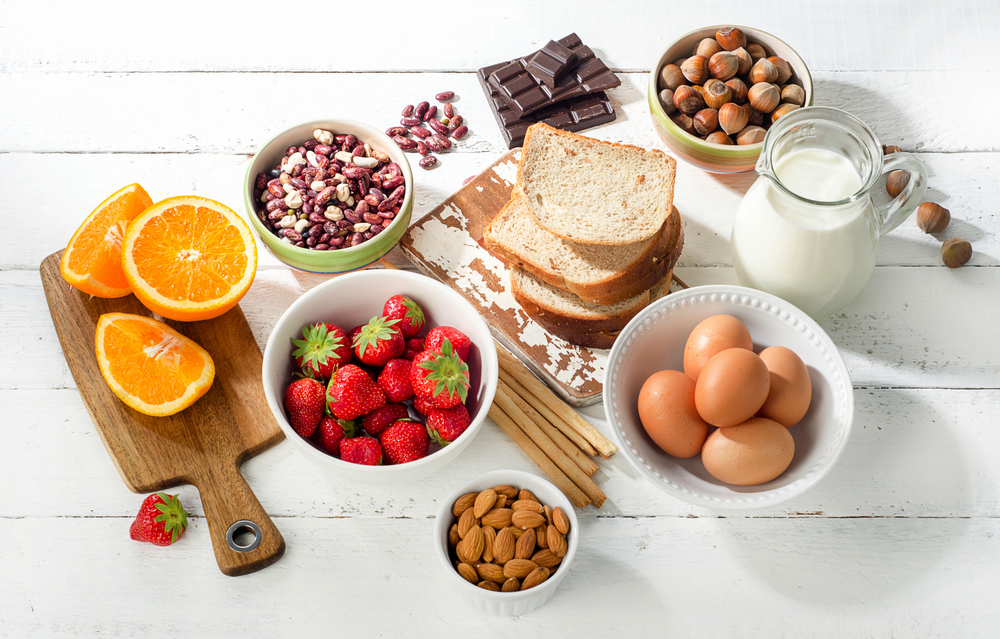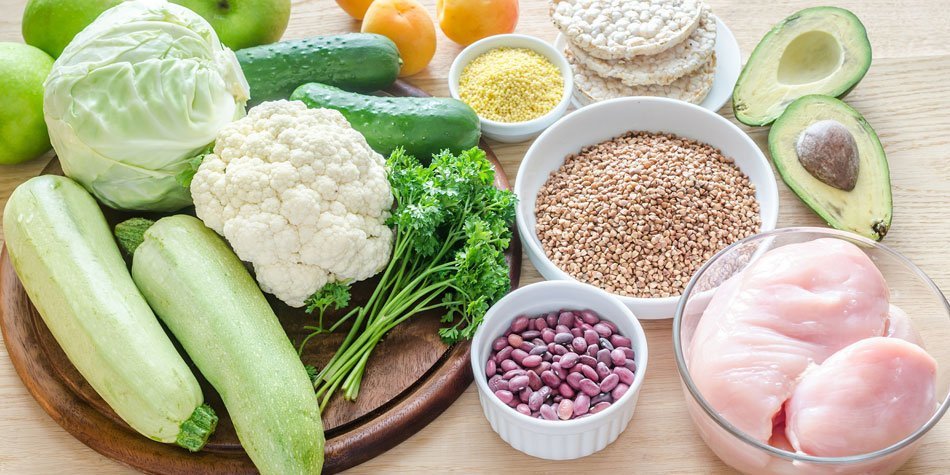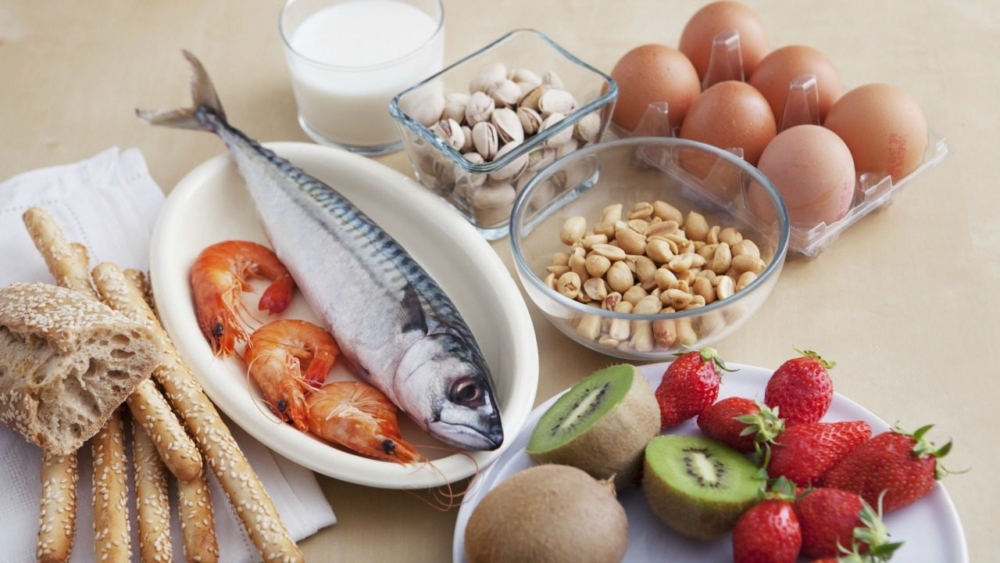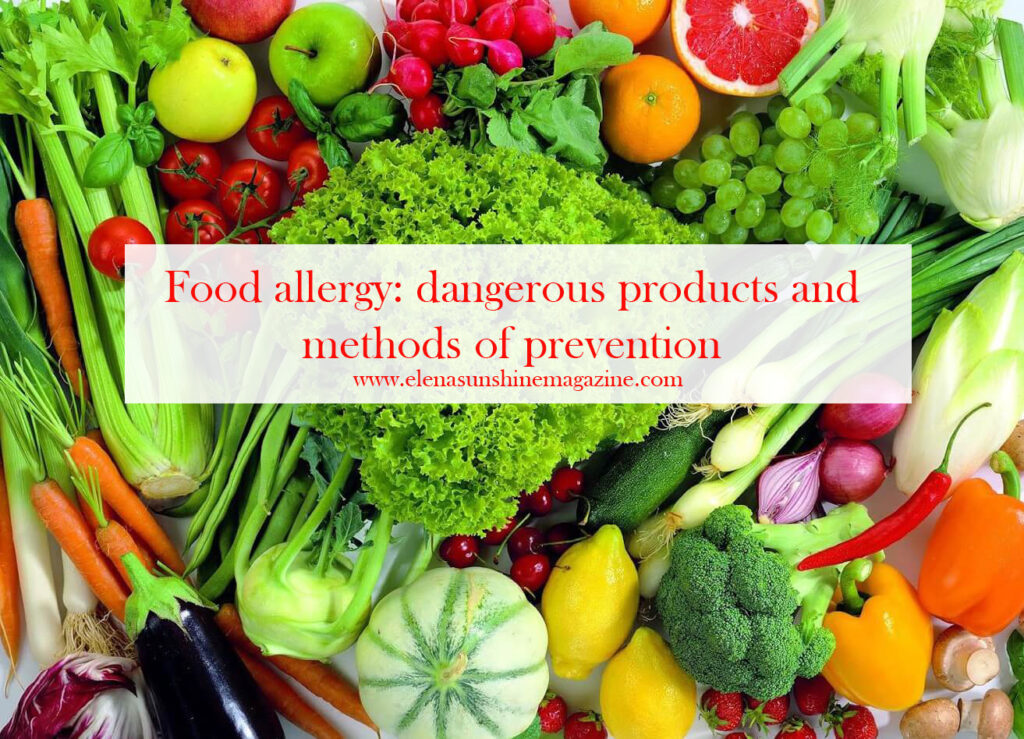We are all very different, and everyone has their own reaction to the same products and phenomena. Sometimes the immune system does not respond adequately to food, and this is usually called a food allergy. Let’s talk about what products are most often allergic to, and how to deal with it? Food allergy: dangerous products and methods of prevention.
What is a food allergy?
One of the causes of food allergies is when the body perceives a certain product as foreign, so it tries to remove or destroy it. Reactions to such stress can be vomiting, diarrhea, urticaria, itching, runny nose, swelling, difficulty breathing, fever, and the causes of allergies can be very different. Some people have heredity and innate features of the digestive system, others have thyroid dysfunction, and others have bad habits.
Sometimes food allergies are provoked by unfavorable ecology, improper nutrition, as well as diseases of the stomach, intestines, liver, gallbladder and pancreas. In children, allergies often appear after an early transition to artificial feeding.
By the way, do not confuse food intolerance with allergies, because in the first case, the body’s reaction is not related to the immune system. For example, many people have lactose intolerance: they can’t drink milk, but they can quite afford fermented milk products.
What products are allergens? Food allergy: dangerous products and methods of prevention.
The most common allergic products are milk, eggs, fish, caviar, seafood, some types of meat, wheat, soy, peanuts and other nuts, cocoa and chocolate, strawberries and strawberries, honey, citrus fruits and mushrooms. However, 90 % of allergy cases are milk, eggs, fish, seafood, wheat, soy, peanuts and nuts.
If you regularly feel discomfort from the gastrointestinal tract after eating dairy products, you may be allergic to the protein contained in cow’s milk. You can find out whether this is true or not by making a special test.
If we talk about chicken eggs, the protein gives a stronger allergic reaction than the yolk, and this is felt even in baking and bakery products. The reason is that eggs contain the protein albumin, which is a powerful allergen that causes the body to produce antibodies. The main cause of allergy to cereals is vegetable protein gluten, pollen and cereal proteins, and most of them are in wheat, rye, oats and corn, and least of all — in rice, barley and buckwheat.

Allergy to fish is often found in residents of coastal areas, some of them do not even tolerate the fish smell. At the same time, sea fish causes a reaction more often than river fish. Meat proteins are very different in composition from each other, so if you are allergic to chicken, there may not be a reaction to beef or pork.
Often, an allergy appears not to meat, but to dandruff and animal hair, to antibiotics and flavoring additives. Interestingly, goose is one of the most allergenic types of meat, and from legumes, peanuts containing 32 types of protein, of which 18 are allergens, are considered unsuitable for allergy sufferers. The great danger is that it can cause anaphylactic shock.
Among the products that cause allergies, there are many vegetables, fruits and berries: lentils, peas, chickpeas, tomatoes, beets, carrots, radish, radish, red pepper, melon, kiwi, persimmon, banana, cherry, grapes, figs, pomegranate, oranges, tangerines, lemons, raspberries, blackberries and black currants.
Red and orange fruits and berries often contain food allergens, unlike yellow and green ones. Many people have such a strong allergy to nuts that even a nut crumb in a cake can cause a choking attack. As for honey, the most allergenic are flower varieties, while pollen and nectar are allergens.
Nutrition for allergies. Food allergy: dangerous products and methods of prevention.
How to make food more suitable for your daily diet, so that you don’t have to give up your favorite foods? You just need to know some tricks, thanks to which food allergens lose their power and become safe. Milk should be brought to a boil, since boiled milk rarely gets into the list of products that cause allergies, although the foam should be treated carefully.

And you can even drink goat’s milk. It is better to cook hard-boiled eggs or make an omelet-compared to soft-boiled eggs and fried eggs, they are less dangerous for allergy sufferers, although many doctors say that the allergen leaves the yolk after cooking, but remains in the protein.
To reduce the amount of allergens in vegetables and fruits, the fruits should be subjected to heat treatment. So, boiled carrots or baked apples can be quite called non-allergenic products. It also helps to peel the fruit, because a lot of allergens are concentrated in the shell.
Many people believe that they are allergic to chocolate, but in fact it may be a reaction to some of its ingredients — nuts, soy lecithin, milk powder, gluten, palm oil or the natural compound chitin contained in the shell of insects, because no one goes through the fruits of the chocolate tree. Cocoa beans rarely cause allergies, so try a drink made from natural cocoa powder or pure chocolate first to understand whether there is an allergy or not.
How to reduce the probability of a reaction
The easiest way is to exclude products that are dangerous for allergies or replace them with more suitable options. At the same time, remember that particles of prohibited products (for example, an egg) may be where you do not expect — for example, in bread or a bun. The same can be said about mayonnaise and sauces, moreover, even in a bag of coffee with cream and fizzy drinks there may be an egg component.
If you are allergic to dairy products, be careful with cheeses, cottage cheese, sour cream, butter, ice cream, sweets and pastries. Even the composition of pasta sometimes includes dairy products and eggs. Soy is often found in sausage, meat, semi-finished products and sweets.
Many food additives, especially dyes, preservatives and some enzymes can also be allergic. And, by the way, if you are allergic to seafood, most likely, you should not eat seaweed and seaweed. In general, you need to carefully read the composition of any food and buy products that do not cause allergies.

Also, try not to overeat, so as not to create a load on the gastrointestinal tract, and reduce the amount of fast carbohydrates (sweets and honey), which create a suitable soil for the development of allergies. Honey is certainly a healthy sweetener, so if there are no allergies, you should not give it up, but do not exceed the permissible daily dose — no more than 2-3 tablespoons per day. Alcohol is also the strongest catalyst for an allergic reaction, so it should not be abused.
The diet that a person follows with allergies is called elimination.
What foods do not cause allergies? The list is quite large. These are vegetables and fruits with a high content of vitamin C, which has a strong antihistamine effect, so pay attention to cauliflower and вrussels sprouts, broccoli and greens. Beta-carotene (spinach, potatoes, pumpkin), magnesium (avocado, buckwheat, bananas, prunes), flavonoid quartzetin (plums, capers, apples), omega-3 acids (flaxseed and olive oil) are very healthy for allergy sufferers — all these valuable substances fight against allergies and soften its manifestations. Rabbit, turkey and lamb are considered the most non-allergenic meat.
According to the observations of doctors, allergies to milk, eggs, vegetables and fruits can pass over time, and the reaction to fish and nuts usually remains for life, so build your diet in such a way that you do not feel a lack of vital vitamins and trace elements. Use more spices, drink chamomile tea and be healthy!



